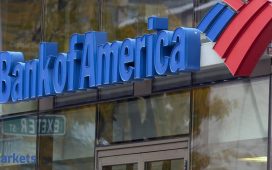In the autumn of 1994, the US designer Tom Ford arrived at the embattled Italian fashion house of Gucci. He produced elegant and sexy collections that transformed the company’s image from frumpy to funky, a makeover chronicled in the House Of Gucci movie.
In the spring of 2024 Gucci – now the key division in the £35 billion French luxury conglomerate Kering – again needs a saviour to arrest a slump in profits and sales.
But there is talk that a predator rather than rescuer could emerge. Gucci is one of two brands most coveted by Bernard Arnault, boss of LVMH, the £350 billion Tiffany and Dior empire. The other is the jeweller Cartier, a division of the Swiss conglomerate Richemont.
A year ago Arnault was trying to buy Richemont. Could he now be eying Kering, whose shares have tumbled by 20 per cent over the past year, due to Gucci’s woes?
There is speculation too that Gucci’s troubles could unseat Kering boss Francois-Henri Pinault, husband of actress Salma Hayek. The Pinault dynasty owns 42 per of Kering and 59 per cent of the voting rights through their vehicle Groupe Artémis, whose holdings also include auctioneer Christie’s.

Gaga for Gucci: Lady Gaga as Patrizia Reggiani in the 2021 film House Of Gucci. Now the label is in trouble again
Nevertheless, some are asking whether Pinault should cede control to his deputy and Yves St Laurent boss Francesca Bellettini.
Swetha Ramachandran of the unrelated Artemis fund managers sums up the debate in the £300 billion-a-year personal luxury goods sector: ‘The question for Kering is whether this cut is the deepest.’
JP Morgan and Morgan Stanley have cut their share price targets for Kering, which now expects a 40 to 45 per cent fall in first-half profit. This is worse than first predicted and bad news for investors, including Scottish Mortgage, the UK’s biggest investment trust, which this weekend was tight lipped about Gucci’s latest upset.
But analysts at Barclays and elsewhere still rate Kering a buy, suggesting bid activity could develop in an industry becoming more polarised as the high growth of the post-lockdown era slows.
The sector is split between the clamour for timeless and very expensive ‘investment’ accessories, such as Birkin bags from Hermes – whose first quarter sales leapt by 17 per cent year-on-year – and much lower levels of lust for fashionable items among the aspirational but not actually rich shoppers that Gucci was courting.
Deeply discounted clothing lines created by former Gucci designer Alessandro Michele are now on sale through an outlet store.
Armelle Poulou, Kering’s chief financial officer, says ‘Gucci is not in the sweet spot for positioning’ – being neither high-end nor affordable enough. But she argues: ‘This context can change rapidly.’
Ramachandran says Gucci is trying to elevate its brand by charging higher prices. But she says the 40 to 50 per cent growth that Gucci enjoyed with Michele’s flamboyant aesthetic may not be rapidly equalled by spending on the ‘quiet luxe’ creations of his replacement Sabato de Sarno.
Much depends on the return of the Chinese, who make up 35 per cent of buyers of high-end clothing, jewellery and watches.
At 62, Pinault will be hoping that time is on his side. Others will be wondering who could play him in a sequel to the House Of Gucci.










